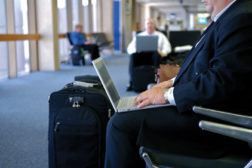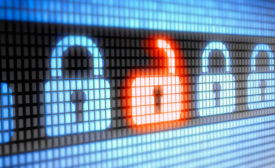Cybersecurity News
“One of the key goals of advancing this nation’s cybersecurity is building trust and relationships between the government and the private sector.”
Read More
Unsecured Medical Equipment Provides Wider Attack Base
The Internet of Things is an unavoidable part of network topology today, but the connectivity of devices leaves enterprises open for cyber attacks.
March 1, 2014
Checklist: 24 Steps for Data Security While Traveling Abroad
When traveling overseas, there is already plenty of work to do in terms of planning, packing and then actually traveling.
March 1, 2014
Why Cybersecurity is a Business Necessity
For well over a decade, CEOs have been relegating the operational, legal, reputational and competitive risks associated with cybersecurity to those responsible for Information Technology.
March 1, 2014
Sign-up to receive top management & result-driven techniques in the industry.
Join over 20,000+ industry leaders who receive our premium content.
SIGN UP TODAY!Copyright ©2025. All Rights Reserved BNP Media.
Design, CMS, Hosting & Web Development :: ePublishing








